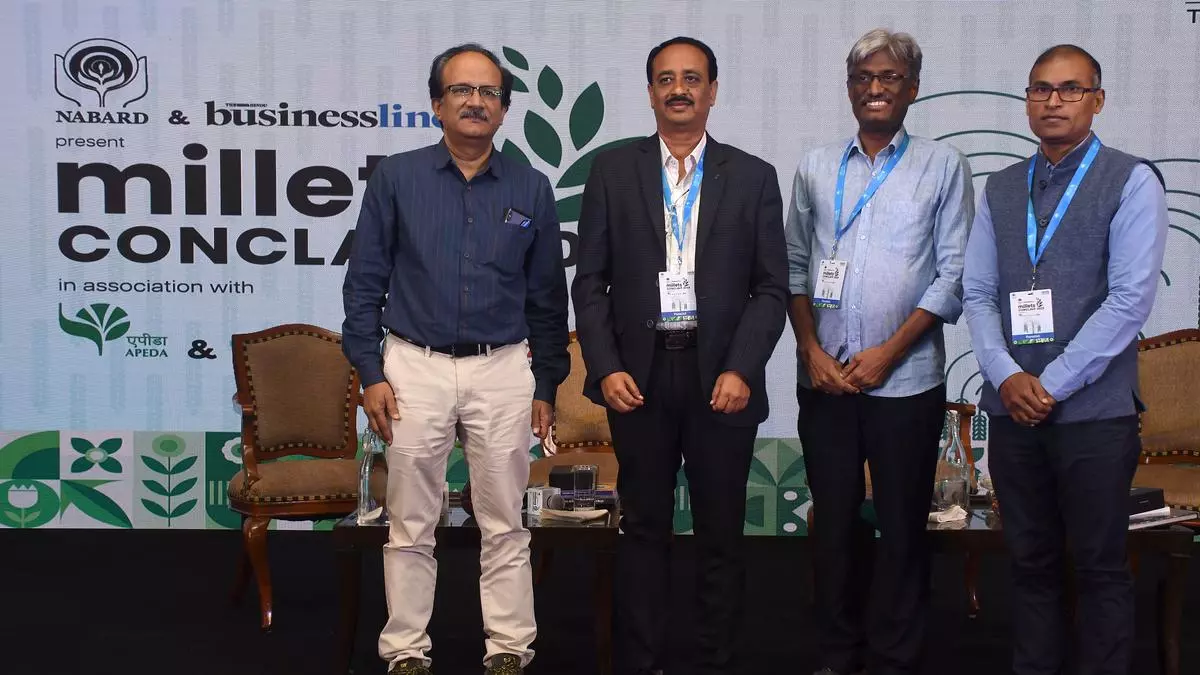Incentivising the farmer, key to increasing millets yield: Experts
Incentivising millets farmers, innovation in agronomics and focus on marketing are key drivers to boost production as well as consumption, according to experts.
“In the period from 1950-55 to 2020, there was a ‘significant’ decline in the area under millet cultivation, while productivity increased about 2.5 times,” T. E. Nagaraja, Professor, Plant Breeding & Head (Small Millets), ICAR, said in a panel discussion on “Improving Millets’ Yield’ at the NABARD and businessline Millets Conclave 2023 held here on Friday.
He attributed the increase in productivity to high-yielding varieties. APEDA and Troo Good are associate partners of the conclave.
According to G. V. Ramanjaneyulu, CEO, Centre for Sustainable Agriculture & Director of the Deccan Development Society, it also vital to understand system productivity for millets, rather than per crop productivity.
Stating that rice gets huge support from the policy and government, he said: “Unless farmers get sustainable, millets cannot be sustainable.”
Sobhan Sajja, Senior Scientist, Crop Improvement Operations, ICRISAT, said producer incentivisation is crucial to improving the yield. “We have a gene bank and can bring in variable gene plasm to address the challenges of a decline in nutrition and yield,” he said.
To get more from less, genetics could be the answer. This might help find answers to challenges such as drought and an increase in temperature. There is also need for support from the processing industry, he said.
Also read: NABARD-businessline Millets Conclave 2023. Millets production set to triple by 2030: Nabard Chairman
Climate change
Risk with climate change is increasing. Reduce emissions from agriculture and help farmers adapt to climate change. Millets are more efficient in this regard. The soil also needs to be protected. Risk coverage is vital and new models in insurance should be worked out along with disaster compensation, Ramajaneyulu said.
On the availability of seeds, Nagaraja said: “We need to establish national food missions for producing quality seeds and other inputs should reach farmers in a better way.”
Millets can be cultivated in all regions, which should be taken up and tested, he said.
K. V. Kurmanath, Senior Deputy Editor, businessline moderated the discussion.
